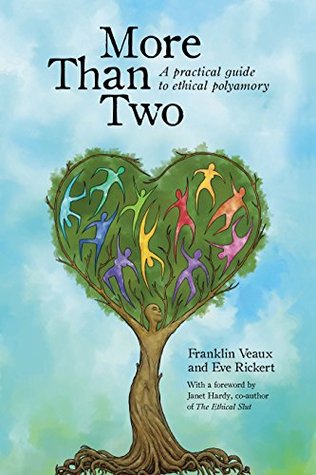More on this book
Community
Kindle Notes & Highlights
by
Eve Rickert
Read between
January 1 - January 1, 2014
The most successful people in life recognize, that in life they create their own love, they manufacture their own meaning, they generate their own motivation. NEIL DEGRASSE TYSON
Deciding whether poly is a good fit requires not only deciding whether you're non-monogamous but also whether the things you want from life, and the personal ethics you bring to the world, align well with having multiple honest romantic relationships.
Many kinds of poly relationships exist; each has its own agreements. But all require trust, respect and compassionate behavior.
if it turns out to be toxic to you or those you care about, it's okay to pull it out.
When I visualize the kind of relationship I want, how much space does it leave for new partners to shape the relationship to their needs?
For each person, the "right" way to do poly is to talk about your needs, fears and insecurities; to talk about the ways your partner can support you; and to honor your commitments—without being controlling or placing rules on other people to protect you from your own emotional triggers. Above all else, trust that you don't have to control your partner, because your partner, given the freedom to do anything, will want to cherish and support you. And always, always move in the direction of greatest courage, toward the best possible version of yourself.
It's impossible to "make" another person be secure. We can provide a compassionate and supportive environment by providing reassurance, by listening, by acting in thoughtful ways, but these actions cannot make someone else secure. Internal work is required for a sense of security and confidence.
It's almost impossible to build a strong relationship of any kind amid insecurity. This seems especially true in polyamory.
Controlling information to try to keep a partner (or to get a partner to do what we want) is one way we treat people as things.
By triggers, we mean specific thoughts, actions, sights or events that set off an emotion that may not actually be related to the current situation, or may be much more powerful than the circumstances would seem to warrant. A trigger is usually tied to an earlier experience and may be connected to a traumatic event.


